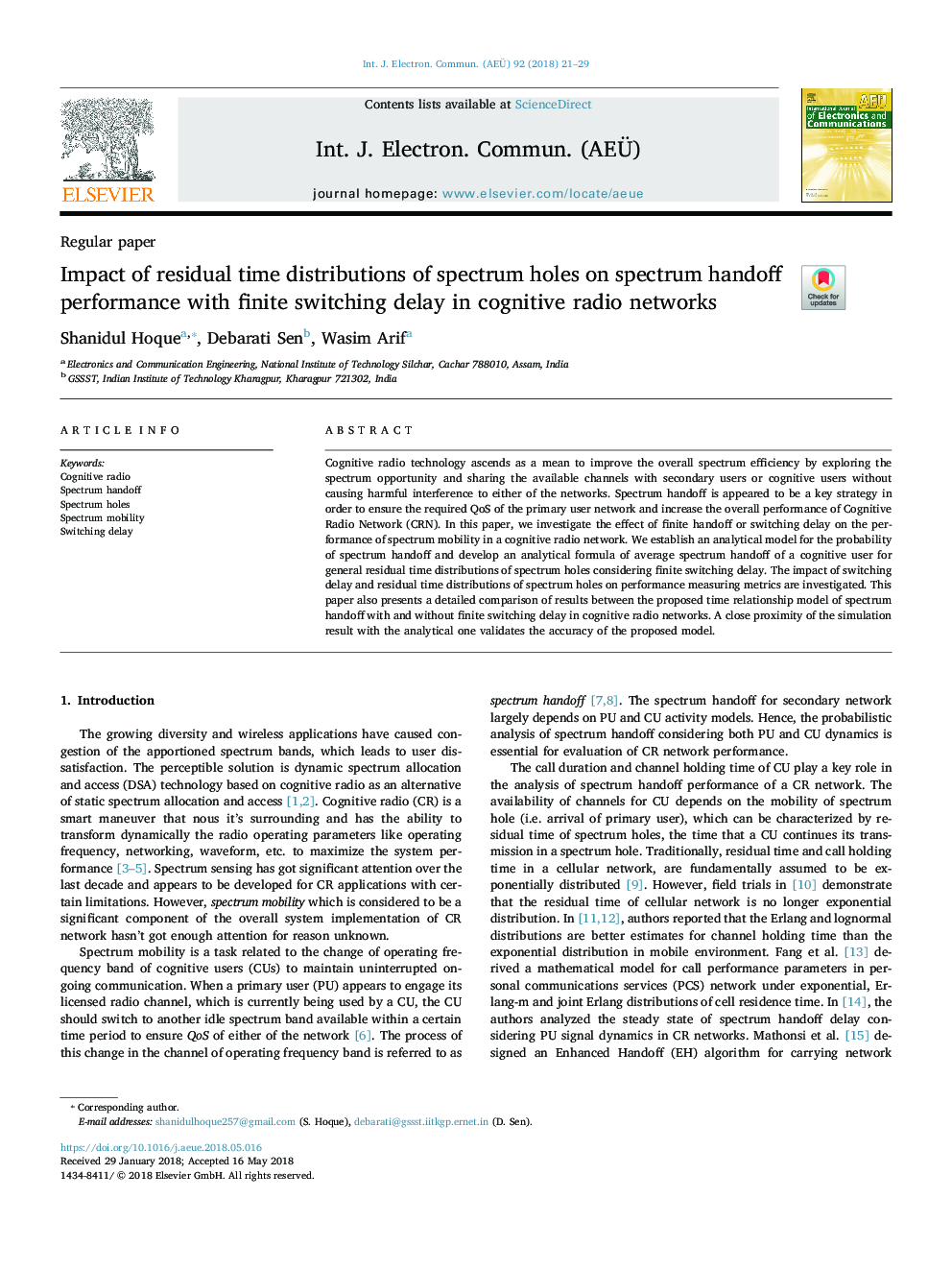| Article ID | Journal | Published Year | Pages | File Type |
|---|---|---|---|---|
| 6879068 | AEU - International Journal of Electronics and Communications | 2018 | 9 Pages |
Abstract
Cognitive radio technology ascends as a mean to improve the overall spectrum efficiency by exploring the spectrum opportunity and sharing the available channels with secondary users or cognitive users without causing harmful interference to either of the networks. Spectrum handoff is appeared to be a key strategy in order to ensure the required QoS of the primary user network and increase the overall performance of Cognitive Radio Network (CRN). In this paper, we investigate the effect of finite handoff or switching delay on the performance of spectrum mobility in a cognitive radio network. We establish an analytical model for the probability of spectrum handoff and develop an analytical formula of average spectrum handoff of a cognitive user for general residual time distributions of spectrum holes considering finite switching delay. The impact of switching delay and residual time distributions of spectrum holes on performance measuring metrics are investigated. This paper also presents a detailed comparison of results between the proposed time relationship model of spectrum handoff with and without finite switching delay in cognitive radio networks. A close proximity of the simulation result with the analytical one validates the accuracy of the proposed model.
Related Topics
Physical Sciences and Engineering
Computer Science
Computer Networks and Communications
Authors
Shanidul Hoque, Debarati Sen, Wasim Arif,
